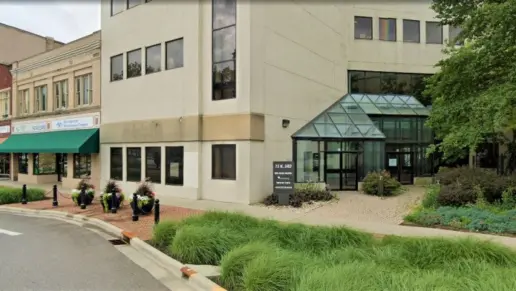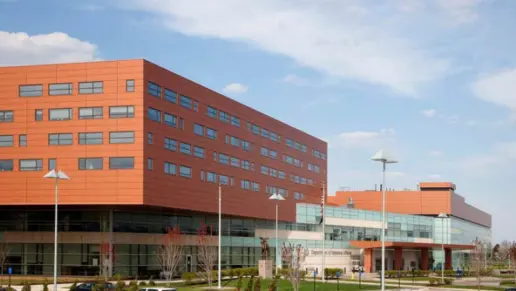About TCN Behavioral Health Services
Located in Fairborn Ohio, TCN Behavioral Health Services provides a wide range of outpatient treatment options for those who are seeking help for substance use disorders. Through both group and individual counseling they emphasize the value of integrating into the local recovery community and focus on recovery and the development of coping skills.
You will go through an assessment process as a new customer that is designed to gather important information about your particular circumstance. Your counselor can assist you in creating goals that are specific to you by learning about your preferences, relationships, past experiences and current needs. The information provided will aid you on your road to recovery.
Their approach to treatment focuses on harm reduction while acknowledging the realities of substance abuse. Rather than focusing solely on complete abstinence, they emphasize reducing the negative effects of addiction such as overdose deaths and other medical, psychological and legal issues.
After the evaluation is finished your counselor will suggest an appropriate degree of care based on your objectives. Intensive outpatient (IOP) and partial hospitalization (PHP) programs are more intensive options for clients who require structured support while standard outpatient care is designed for clients who have minimal substance use consequences.
Dual-diagnosed people can also get specialized care that takes into account their substance abuse issues as well as mental health issues.
Aftercare programs that focus on skill development and relapse prevention are crucial for people who have completed more advanced treatment. Their MAT program supports people with opioid and alcohol use disorders by providing counseling and medication options such as buprenorphine, naloxone, and naltrexone. Their dedication to a compassionate non-judgmental setting guarantees that every client is seen as an individual with distinct psychological needs.
Facility Overview
Latest Reviews
Rehab Score
Gallery
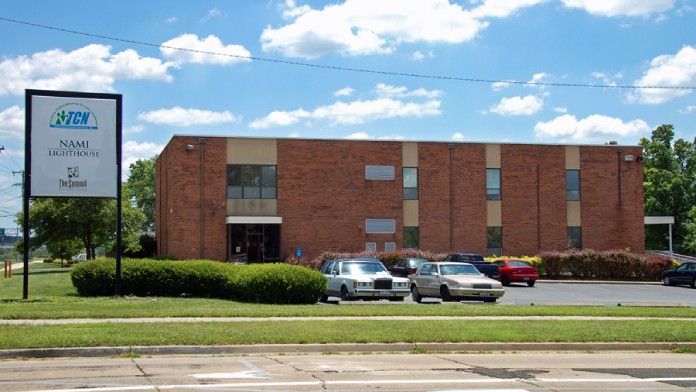
Location
Other Forms of Payment
Private insurance refers to any kind of healthcare coverage that isn't from the state or federal government. This includes individual and family plans offered by an employer or purchased from the Insurance Marketplace. Every plan will have different requirements and out of pocket costs so be sure to get the full details before you start treatment.
Self-pay involves paying for treatment out of your own pocket. You can use savings or credit, get a personal loan, or receive help from family and friends to fund your treatment. If you don't have insurance or your insurance plan doesn't cover a specific program, self-pay can help ensure you still get the care you need.
Financial aid can take many forms. Centers may have grants or scholarships available to clients who meet eligibility requirements. Programs that receive SAMHSA grants may have financial aid available for those who need treatment as well. Grants and scholarships can help you pai for treatment without having to repay.
Medicare is a federal program that provides health insurance for those 65 and older. It also serves people under 65 with chronic and disabling health challenges. To use Medicare for addiction treatment you need to find a program that accepts Medicare and is in network with your plan. Out of pocket costs and preauthorization requirements vary, so always check with your provider.
Medicaid is a state based program that helps lower-income individuals and families pay for healthcare. Medicaid covers addiction treatment so those enrolled can use their coverage to pay for rehab. When a program accepts Medicaid the client often pays very little or nothing out of their own pocket.
Military members, veterans, and eligible dependents have access to specific insurance programs that help them get the care they need. TRICARE and VA insurance can help you access low cost or no cost addiction and mental health treatment. Programs that accept military insurance often have targeted treatment focused on the unique challenges military members, veterans, and their families face.
Addiction Treatments
Levels of Care
Treatments
The goal of treatment for alcoholism is abstinence. Those with poor social support, poor motivation, or psychiatric disorders tend to relapse within a few years of treatment. For these people, success is measured by longer periods of abstinence, reduced use of alcohol, better health, and improved social functioning. Recovery and Maintenance are usually based on 12 step programs and AA meetings.
Drug rehab in Ohio provides comprehensive treatment to address the physical and psychological needs of those struggling with substance use disorders. This may involve inpatient and/or outpatient care.
TCN, as a provider of all types of behavioral health treatment, recognizes that many clients have both mental illness and chemical dependency treatment needs. This highly specialized treatment option addresses the challenges of working toward recovery when dealing with multiple issues. Education and skill building focus on abstaining from substances while managing the challenges of mental illness. Clients receive additional support in this program through involvement with Community Support Services.
A combined mental health and substance abuse rehab has the staff and resources available to handle individuals with both mental health and substance abuse issues. It can be challenging to determine where a specific symptom stems from (a mental health issue or an issue related to substance abuse), so mental health and substance abuse professionals are helpful in detangling symptoms and keeping treatment on track.
Opioid rehabs specialize in supporting those recovering from opioid addiction. They treat those suffering from addiction to illegal opioids like heroin, as well as prescription drugs like oxycodone. These centers typically combine both physical as well as mental and emotional support to help stop addiction. Physical support often includes medical detox and subsequent medical support (including medication), and mental support includes in-depth therapy to address the underlying causes of addiction.
Programs



Clinical Services
Cognitive Behavioral Therapy (CBT) is a therapy modality that focuses on the relationship between one's thoughts, feelings, and behaviors. It is used to establish and allow for healthy responses to thoughts and feelings (instead of unhealthy responses, like using drugs or alcohol). CBT has been proven effective for recovering addicts of all kinds, and is used to strengthen a patient's own self-awareness and ability to self-regulate. CBT allows individuals to monitor their own emotional state, become more adept at communicating with others, and manage stress without needing to engage in substance abuse.
Dialectical Behavior Therapy (DBT) is a modified form of Cognitive Behavioral Therapy (CBT), a treatment designed to help people understand and ultimately affect the relationship between their thoughts, feelings, and behaviors. DBT is often used for individuals who struggle with self-harm behaviors, such as self-mutilation (cutting) and suicidal thoughts, urges, or attempts. It has been proven clinically effective for those who struggle with out-of-control emotions and mental health illnesses like Borderline Personality Disorder.
Group counseling provides a unique and dynamic atmosphere to address specific issues. Building support with people who share similar concerns, giving and receiving feedback, and observing successes and challenges are just a few of the advantages of group counseling. TCN offers group therapy including Anger Management, their Recovery Program day treatment for severe mental illness, and dialectical behavior therapy group, Wise Minds.
Based upon the goals and plan developed at assessment, TCN counselors work to meet those individualized needs. Counseling is customized to meet client needs and build upon strengths. Their counselors will review progress regularly and tailor future sessions to your evolving needs.
Therapists who apply motivational interviewing in Ohio don't try to confront clients or force advice onto them. Instead, they listen and come alongside clients to help them explore why and how they might decide to make changes for themselves.
Trauma therapy addresses traumatic incidents from a client's past that are likely affecting their present-day experience. Trauma is often one of the primary triggers and potential causes of addiction, and can stem from child sexual abuse, domestic violence, having a parent with a mental illness, losing one or both parents at a young age, teenage or adult sexual assault, or any number of other factors. The purpose of trauma therapy is to allow a patient to process trauma and move through and past it, with the help of trained and compassionate mental health professionals.
Whether a marriage or other committed relationship, an intimate partnership is one of the most important aspects of a person's life. Drug and alcohol addiction affects both members of a couple in deep and meaningful ways, as does rehab and recovery. Couples therapy and other couples-focused treatment programs are significant parts of exploring triggers of addiction, as well as learning how to build healthy patterns to support ongoing sobriety.
You may encounter relational stressors that require your significant other or entire family to participate in the counseling process. As with Individual Counseling, the concerned parties will contribute to the goal setting and plan development to ensure that treatment is meaningful to your situation.
TCN provides a best-practice Supported Employment program to assist mentally ill clients in pursuit of meaningful job opportunities suited to their clients' strengths and abilities. Their program assesses their clients' aptitudes and goals to assist with job placement and job support.
Nutrition therapy helps with detox and drug rehab treatment in Ohio. This treatment gives you the skills you need to develop healthy eating habits, which help you recover more quickly and maintain long term sobriety.
Amenities
-
Private Transportation
-
Residential Setting
-
Private Rooms
Staff & Accreditations
Staff
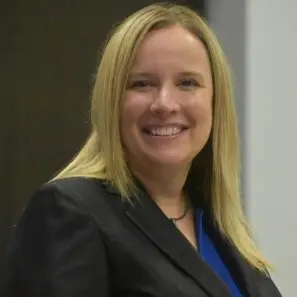
CEO
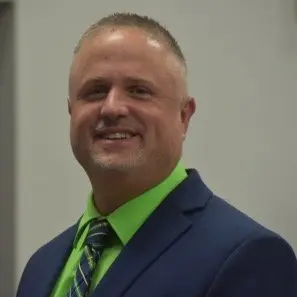
Associate Chief Executive Officer
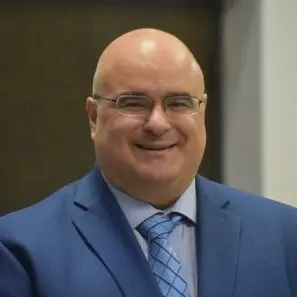
Chief Administrative Officer
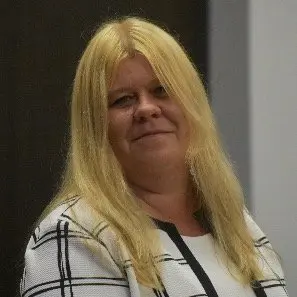
COO
Accreditations

The Commission on Accreditation of Rehabilitation Facilities (CARF) is a non-profit organization that specifically accredits rehab organizations. Founded in 1966, CARF's, mission is to help service providers like rehab facilities maintain high standards of care.
CARF Accreditation: Yes

State Licenses are permits issued by government agencies that allow rehab organizations to conduct business legally within a certain geographical area. Typically, the kind of program a rehab facility offers, along with its physical location, determines which licenses are required to operate legally.
State License: Ohio
Contact Information
1825 Commerce Center Blvd
Fairborn, OH 45324
